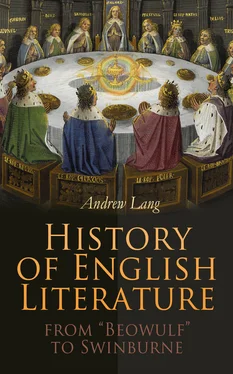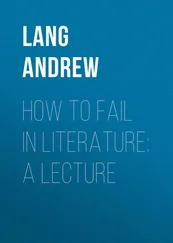The Pardoner, with his wallet
Bret-ful of pardoun come from Rome al hoot,
"pardons hot from Rome," and with a large collection of spurious relics of Saints, is an odious kind of sacred swindler, but his tale is pointed against avarice. It is derived from a very old story found in Asia as well as in Europe. The Pardoner begins by a satirical account of his profession and of his practices, his greed and lust, his spoiling of the poor, before he preaches his moral tale of the evils of greed.
For, though myself be a ful vicious man,
A moral tale yet I you telle can,
and a terrible tale of murder it is. The Host himself is sickened by the cynicism of the Pardoner, but the tolerant Knight makes peace between them: in the nature of things the Knight would have ridden forward out of his odious society. It has been said that the tales "display the literary and artistic side" of Chaucer's genius; and many of them were not made for their places in the Pilgrimage, while Chaucer's "observing and dramatic genius" appears in the prologues and places where the characters converse together. These passages are often, to us, the most curious and interesting, for they are dramatic and humorous pictures of actual life and manners. But the tolerance of the Pardoner by the Knight, is almost too great a stretch of gentleness.
The rich, business-like, proud, luxurious Wife of Bath who has had as many husbands as the Woman of Samaria, begins with a long Prologue about her own past life and her distaste for the mediaeval exaltation of virginity; she prefers the example of the much married King Solomon. She boasts herself to be a worshipper of Venus and Mars, love is not more her delight than domestic broils and domineering. Her prologue and tale are in Chaucer's best later style of verse: the tale is like that of courteous Sir Gawain, and his bride, the Loathly Lady, in a romance, and the Friar, or Frere, justly says that she deals too much "in school matter of great difficulty," and in learned authorities.
The Frere and the Summoner next tell tales gibing at each other's profession. They are of the coarser sort, and are relieved by the Clerk's tale in stanzas; it is a form of the famous legend of Patient Griselda, whose patience is like that of Enid in "The Idylls of the King". The Clerk says that he learned the story from Petrarch, the great Italian poet, in Padua. The story, like most of those which are serious, is given in stanzas: Boccaccio wrote it in Italian; Petrarch in Latin. The poet would not wish wives be as meek as Griselda; there is a happy mean between her invincible patience and the tyranny of the Wife of Bath.
The Merchant's Tale continues the debate on Marriage, started by the Wife of Bath, and carried into clearer air by the modest Clerk of Oxford. Chaucer had Latin sources for the discussions, and the humorous laxity of the story of January and May is based on an old popular jest-story of which Boccaccio's version, in the "Decameron," seems nearest to the original form—the Tree, as in Asiatic versions, is enchanted. A more pleasant variety of Asiatic tale, that of the Flying Horse (as in the "Arabian Nights"), is "left half-told" by the Squire, the son of the Knight: as good a man as his father. Chaucer either never finished the story, or the conclusion was lost.
The story told by the Franklin is, after those of the Knight and the Prioress, perhaps the most poetical of all. It is a romance in which the problem of marriage and the supremacy of husband or wife is once more touched on and happily settled by the steadfast love of the knight and lady. They are separated for years, a new lover is rejected by the lady, and, to win her, makes a magician cause by "glamour" (something in the way of hypnotic suggestion) the apparent disappearance of the black rocks of Britanny. But loyalty is stronger than magic. This charming tale is based on a Breton original; but the handling is entirely Chaucer's, and is done in his best and gentlest manner.
The Second Nun's Tale is the legend of the marriage and wooing of St. Cecily; it was composed in stanzas, and is put into its place without the removal of lines which show that it was written separately before Chaucer thought of his framework. Among the latest additions are the Prologue and Tale of the Canon's Yeoman,—neither yeoman nor canon is among the original characters of the General Prologue. The story contains a satire of the golden dreams, self-deceptions, and impostures of the Alchemists, with their search for the Philosopher's Stone.
The Tale of the Manciple, or kitchen servant, is really a "Just so Story" explaining why the crow is black, and is taken from Ovid, who took it from an old Greek fable.
Finally, the honest country Parson has his chance. He announces that being a man of Southern England, he likes not rum , ram , ruf (alliterative verse), nor cares for rhyme, and he preaches in prose at very great length. His sermon is a free translation, with alterations of all sorts, from a French source, the same as the source of the "Ayenbite of Inwyt" (Remorse).
The immense variety in character of the Tales, covering all the tastes of the time, is now apparent. For the gay and the grave, the lively and severe, Chaucer has provided reading.
1.This is manifest for (line 1201) he dismisses the story of Perithous and Theseus la Hades,
But of that story list me nat to wryte.
CHAPTER X.
"PIERS PLOWMAN." GOWER.
Table of Contents
Contemporary with Chaucer, and in perfect contrast with Chaucer, whom he probably never met, was the author of the alliterative "rum, ram, ruff," poem "Piers Plowman". This author is generally supposed to have been named William Langley or Langland. By piecing together many detached pieces of evidence the conjecture is reached that William first saw the light at Cleobury in Shropshire or at Wychwood in Oxfordshire, about the year 1332, was well educated, was in minor orders, and a married man. But if everything that the author of "Piers Plowman" makes his dreamer say about himself is also true of the author, he must have been a strange and unhappy character.
His poem, following the convention of dreams and allegories, is the record of dreams into which he fell, first on the Malvern hills; later, wherever he chanced to be. The poem exists in three forms (A, B, C), and, from the allusions to contemporary events (such as the peace of Bretigny, with France (1360), and a great tempest of January, 1362), the A version may have been composed in 1362. The B version, much altered and enlarged, is dated, from its allusions to events, in 1377; and the C version, also enlarged, from its references to the unpopularity of Richard II, must be later than 1392.
If the poet drew his dreamer and narrator from study of his own character, he must have been, in some ways, not unlike Mr. Thomas Carlyle. Though he had a noble appreciation of the dignity and duty of manual labour,—the honest and pious ploughman was his favourite character,—he never did toil with his hands. In reply to the remonstrances of Reason, he says:—
I am too weak to work with sickle or with scythe.
Over-education in youth has sapped his manhood: and, since his friends who paid for his schooling died, he has never joyed. He praised the country, but, as Dr. Johnson said, "hung loose upon the town," a man of a modern type.
"Ich live in Londone, and on Londone both," he writes. The instruments of his craft are not sickle and scythe, but the paternoster , the psalter, "and my seven psalms," that "I sing for men's souls". In return for such services he picks up a bare livelihood. Clerks like himself should "come of franklins and freemen," not of bondmen. The sons of serfs, he thinks, should do manual labour, and should not be admitted to Holy Orders. This was the view of the English House of Commons, under Richard II, and it may be that the poet is rather satirizing their exclusiveness, and the hand-to-mouth lazy life of poor clerks, than describing himself. The narrator, after the sermon preached at him by Reason, goes to Church in a penitent mood, and beats his breast, but does not change his course of life.
Читать дальше












